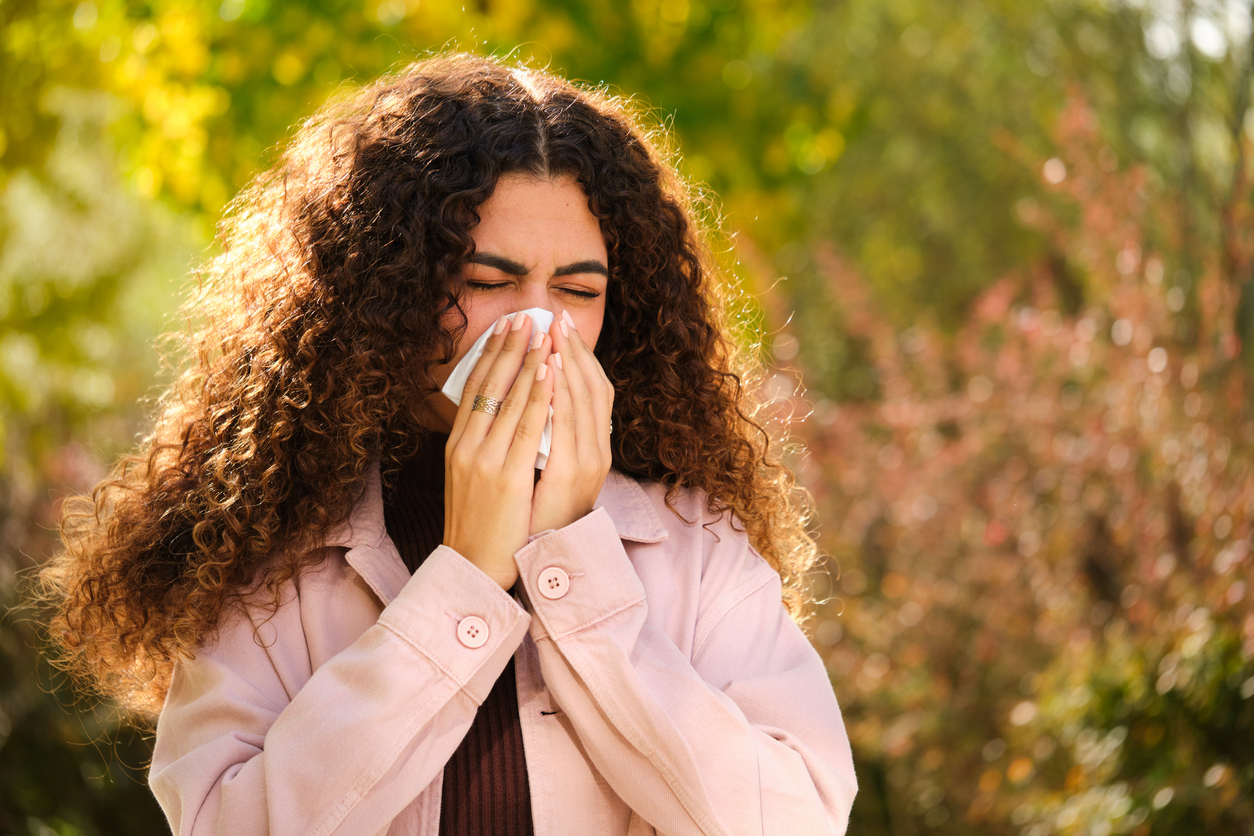Shortness of breath, coughing and congestion may be symptoms people experience in specific seasons or as a response to environmental irritants, and they may be left wondering if it’s asthma or allergies.
While asthma and allergies often appear together and share some common triggers, they’re two different conditions with different treatment approaches.
Knowing how to tell the difference between asthma and allergies can help you better understand your body’s reactions and get the right care.
What Are Allergies?

Allergies occur when your immune system reacts to substances that are normally harmless, such as pollen, dust, mold or pet dander. These substances are known as allergens. When exposed, your body releases chemicals like histamine, leading to symptoms that affect the eyes, nose and skin.
Common symptoms of allergies include:
- Sneezing
- Runny or stuffy nose
- Itchy or watery eyes
- Itchy throat or ears
- Skin rashes or hives
- Postnasal drip
Allergy symptoms are usually seasonal or occur during exposure to specific allergens, like after walking through trees at Croft State Park. For example, someone might feel fine most of the year but experience intense symptoms during the spring due to tree pollen. Nearly 100 million Americans experience allergy symptoms each year.
What Is Asthma?
Asthma is a chronic condition that affects the airways in the lungs. When someone with asthma is exposed to a trigger, such as allergies, cold air or exercise, their airways narrow and swell, making it harder to breathe.
Common symptoms of asthma include:
- Shortness of breath
- Chest tightness or pain
- Wheezing
- Persistent coughing, especially at night or after exercise
- Difficulty breathing during or after exposure to triggers
Asthma symptoms may occur year-round or flare up suddenly in response to specific conditions. While some cases are mild and occasional, others require daily medication to keep symptoms under control.
Even though the two conditions often go hand in hand, they affect the body in different ways. Allergies typically affect the upper respiratory system, while asthma involves the lower respiratory system.
If you experience symptoms like wheezing or chest tightness in addition to typical allergy signs, you might be dealing with both conditions.
When to See a Doctor
If you’re not sure whether you have asthma, allergies or both, a doctor can help you sort it out with proper testing and diagnosis.
You should see a doctor if:
- You have persistent coughing or wheezing
- Allergy symptoms don’t improve with over-the-counter medications
- You have difficulty breathing during exercise or at night
- Symptoms worsen during certain seasons or after exposure to animals or dust
Treatment may include allergy medications, inhalers or long-term asthma control therapies.
To learn more about what may be affecting you, contact Spartanburg-Greer ENT & Allergy to schedule an appointment today.